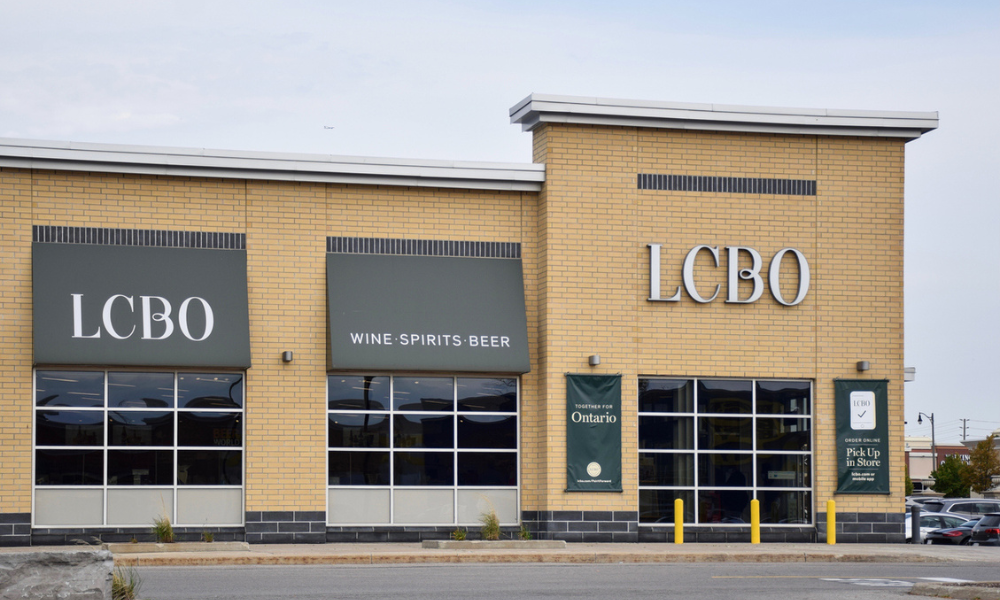Employer 'disappointed' in union leadership’s initiation of strike

More than 9,000 Liquor Control Board of Ontario (LCBO) workers have started their strike action as of 12:01 am today.
This is the first time a workers’ strike has been held at the liquor retailer, according to reports.
LCBO said it is “disappointed that the leadership” of the union decided to initiate the first strike in LCBO history, in a statement.
“For the past several months, we have engaged in collective bargaining with OPSEU in hopes of reaching a fair and equitable agreement that addresses their considerations while ensuring the long-term sustainability of our operations. Despite our best efforts, we have not yet been able to do so.”
LCBO retail locations will be closed for 14 days, and the employer said it has implemented contingency plans “to help minimize disruption as much as possible”.
“We will be operating our business, but it is not business as usual,” it said.
Online ordering remains available with free home delivery, said the LCBO.
Should OPSEU remain on strike after the 14 days period has elapsed, 32 LCBO retail stores will begin to re-open for in-store shopping and operate three days a week (Friday, Saturday, Sunday) with limited hours in effect.
“We remain hopeful that we can quickly reach an agreement that is fair to our employees, while enabling the LCBO’s continued success in a changing marketplace,” said the statement.
Back in 2022, Barb Keenan, now CPO at LCBO, did a video interview with Canadian HR Reporter to discuss how and why she entered the HR profession, the rewards and challenges of HR, her career background, and plans for the future.
LCBO workers’ concerns
The union's concerns center on job security in response to the provincial government's proposed plan to introduce alcohol sales in 8,500 new locations. The union fears this could lead to reduced revenues for LCBO and potential job cuts and store closures.
Documents obtained by Radio-Canada revealed that Ontario Premier Ford's order to the LCBO to bring back paper bags caught senior executives off guard, leading to a scramble for new supplies.
Additionally, the province's recent decision to allow convenience stores, big box outlets, and some gas stations to sell beer, wine, and other ready-to-drink beverages starting in September has added another layer of complexity to the market environment, said the CBC.
“Doug Ford wants to make life better for his wealthy friends. It’s why he’s wasting upwards of a billion dollars of our money to fast-track privatized alcohol sales and hand more of the public revenues generated by the LCBO over to the CEOs and big box grocery and convenience chains like Loblaws and Circle K,” said JP Hornick, president of Ontario Public Service Employees Union (OPSEU/SEFPO).
The union earlier got a 97% in favour of strike action during the strike vote.
Right now, 70% of LCBO workers are casual – they don’t have guaranteed hours, which means most won’t have access to benefits and there aren’t opportunities to move into permanent part-time and full-time positions, according to OPSEU/SEFPO.
LCBO ‘committed to achieving a deal’
In mid-June, when union members voted in favour of strike, the LCBO said it “remains committed to achieving a deal at the bargaining table without a strike by employees.”
“We have several bargaining dates this week where we will resume negotiations with a focus on achieving a renewal collective agreement with OPSEU that is fair for our unionized employees and helps the LCBO operate efficiently and effectively for Ontarians in a changing marketplace.”
Meanwhile, Colin Blachar, press secretary for Finance Minister Peter Bethlenfalvy, expressed disappointment over the strike vote back in June.
"It's never been more clear that Ontario consumers need and deserve the same choice and convenience every other Canadian enjoys," Blachar told the CBC.
The LCBO is continuing to receive and fulfill wholesale orders and beverage alcohol is available through the approximately 2,300 private retail points of sale across the province, including through LCBO Convenience Outlets, licensed grocery stores, The Beer Store, and winery, brewery, cidery, and distillery outlets, as well as at bars and restaurants.




